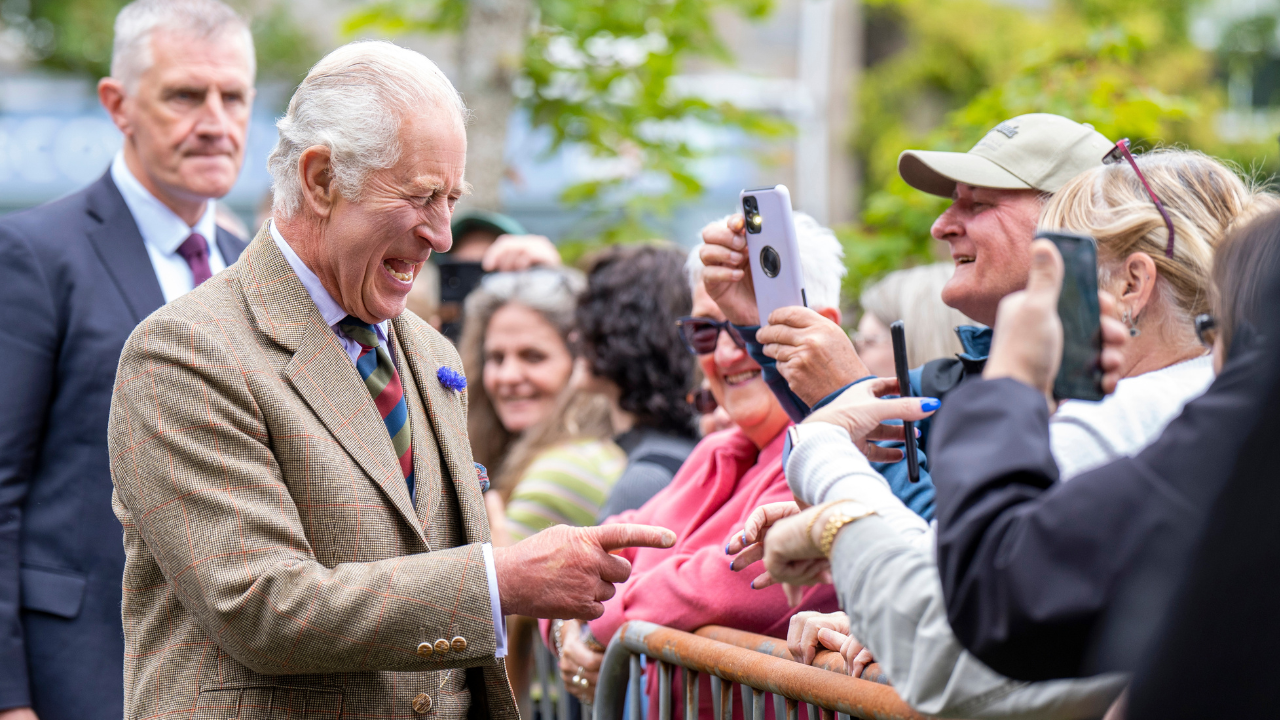NEW DELHI: King Charles III‘s public appearances will be limited over the next six weeks, but not due to his ongoing cancer treatments. Following UK Prime Minister Rishi Sunak’s announcement of an early parliamentary election on July 4, Buckingham Palace stated that the royal family would be canceling most public engagements until after the vote. This decision was made to prevent any actions that might shift focus away from the campaign.
As a unifying head of state, King Charles will strive to fulfill his role during the election while adhering to the constitutional prohibition on political interference.Although the king’s role in government is primarily ceremonial, it is intertwined with traditions that reflect the gradual transfer of royal powers to Parliament over the past eight centuries.
The king’s involvement in calling the election was limited to granting permission to dissolve Parliament early, a request made by Sunak. Technically, the king retains the power to refuse a dissolution request if he believes an election would be detrimental to the nation.
However, no prime minister in modern times has been denied permission to dissolve Parliament, as ignoring this precedent “would expose the monarch to allegations of political interference of an undemocratic nature, even if the intention of the refusal was to preserve the good functioning of democracy,” according to the Institute for Government, an independent think tank.
The current session of Parliament will be “prorogued,” or ended, on Friday based on an order that King Charles approved during a meeting of the Privy Council on Thursday at Buckingham Palace. The king will not attend the formal end of the session, a ceremonial affair where the speaker of the House of Commons and other members of Parliament will troop into the House of Lords to hear a speech written by the government.
To ensure strict adherence to the rules barring the royal family from interfering in politics, especially during an election, the royals cannot campaign for candidates, endorse policies, or even express their political preferences. Consequently, Buckingham Palace announced that members of the royal family would postpone all engagements that “may appear to divert attention or distract from the election campaign.” This led to the king canceling trips to a Bentley car factory and a community center assisting those facing financial difficulties.
However, some engagements are considered above reproach, such as the king and queen’s planned attendance at ceremonies marking the 80th anniversary of D-Day on June 6. Other engagements will be evaluated on a case-by-case basis, according to the palace.
The monarchy’s primary role is to provide a unifying figurehead who is seen as above politics and can offer stability in challenging times. This is the first general election of King Charles’ reign, while his mother, Queen Elizabeth II, oversaw 21 during her 70 years on the throne. As George Gross, a royal expert at King’s College London, noted, elections are inherently moments of turbulence, and people look to the monarchy for continuity during these times. The head of state assumes a crucial role in maintaining stability and continuity, and the royals must refrain from any political involvement.
As a unifying head of state, King Charles will strive to fulfill his role during the election while adhering to the constitutional prohibition on political interference.Although the king’s role in government is primarily ceremonial, it is intertwined with traditions that reflect the gradual transfer of royal powers to Parliament over the past eight centuries.
The king’s involvement in calling the election was limited to granting permission to dissolve Parliament early, a request made by Sunak. Technically, the king retains the power to refuse a dissolution request if he believes an election would be detrimental to the nation.
However, no prime minister in modern times has been denied permission to dissolve Parliament, as ignoring this precedent “would expose the monarch to allegations of political interference of an undemocratic nature, even if the intention of the refusal was to preserve the good functioning of democracy,” according to the Institute for Government, an independent think tank.
The current session of Parliament will be “prorogued,” or ended, on Friday based on an order that King Charles approved during a meeting of the Privy Council on Thursday at Buckingham Palace. The king will not attend the formal end of the session, a ceremonial affair where the speaker of the House of Commons and other members of Parliament will troop into the House of Lords to hear a speech written by the government.
To ensure strict adherence to the rules barring the royal family from interfering in politics, especially during an election, the royals cannot campaign for candidates, endorse policies, or even express their political preferences. Consequently, Buckingham Palace announced that members of the royal family would postpone all engagements that “may appear to divert attention or distract from the election campaign.” This led to the king canceling trips to a Bentley car factory and a community center assisting those facing financial difficulties.
However, some engagements are considered above reproach, such as the king and queen’s planned attendance at ceremonies marking the 80th anniversary of D-Day on June 6. Other engagements will be evaluated on a case-by-case basis, according to the palace.
The monarchy’s primary role is to provide a unifying figurehead who is seen as above politics and can offer stability in challenging times. This is the first general election of King Charles’ reign, while his mother, Queen Elizabeth II, oversaw 21 during her 70 years on the throne. As George Gross, a royal expert at King’s College London, noted, elections are inherently moments of turbulence, and people look to the monarchy for continuity during these times. The head of state assumes a crucial role in maintaining stability and continuity, and the royals must refrain from any political involvement.
